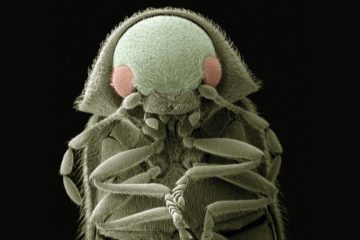Ian Rose in JSTOR Daily:
 For at least the last 400 million years, insects have ruled the world. The first insect fossils are nearly twice as old as the oldest dinosaur. They were the first animals to fly, and that adaptation helped them to spread to every corner of the planet. They survived four of the five mass extinctions in Earth’s history. Then, a mere 200,000 years ago, a new species appeared in East Africa and started to spread over the surface of their planet. In a geologic blink, modern humans were everywhere, hunting and farming and changing the world to fit our needs and desires. It was inevitable that these two dominant animals would come to affect each other in profound ways, both positive and negative.
For at least the last 400 million years, insects have ruled the world. The first insect fossils are nearly twice as old as the oldest dinosaur. They were the first animals to fly, and that adaptation helped them to spread to every corner of the planet. They survived four of the five mass extinctions in Earth’s history. Then, a mere 200,000 years ago, a new species appeared in East Africa and started to spread over the surface of their planet. In a geologic blink, modern humans were everywhere, hunting and farming and changing the world to fit our needs and desires. It was inevitable that these two dominant animals would come to affect each other in profound ways, both positive and negative.
For most of our history as a primarily hunter-gatherer and then agricultural species, insects were a natural force on par with the weather. We could no more summon their benefits or hold back their ravages than we could start or stop the wind. So, we lived with them, and adapted to them, as they did to us. Our relationship status has always been complicated, but insects fall into three major roles in terms of how they interact with humans—providers, destroyers, and vectors of disease.
More here.
